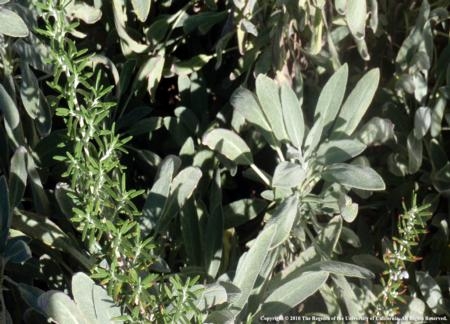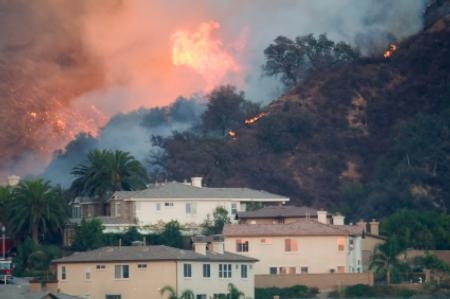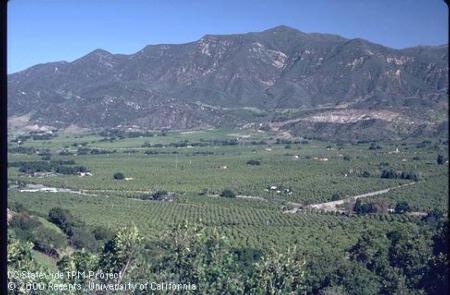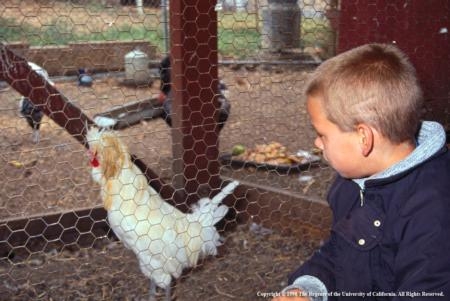- Author: Cris L. Johnson

Maintaining a strong food supply was an integral part of homefront support efforts where victory garden campaigns were not only important in creating food for home use and supplying to troops, but also as a patriotic booster for those at home who wanted to do their part.
Rose Hayden-Smith, UC Ventura County Cooperative Extension's community and youth development advisor, spoke at the exhibit on January 26 on "Digging for Victory: How America's Gardeners Helped the War Effort." Rose is a historian with an active and passionate interest in victory gardens, their place in history and relevance to maintaining a healthy and abundant food supply for the present and the future. You can learn more about this at her Victory Grower website.
Check out this historic exhibit so relevant to our county which has some of the most versatile agricultural land in the state.
Dates of exhibit: Now through March 27, 2013
Location:
Museum of Ventura County
926 Railroad Ave.
Santa Paula, CA 93060
805-525-3100
Please see the museum website for hours and admission costs.
- Author: Chris M. Webb
UC ANR’s Spanish News Service website brings Agriculture and Natural Resource information to California residents who are fluent, and more comfortable learning, in Spanish. This is a vital service for all Californians as many of the issues and challenges we face together can only be solved by all of us working together.
This highly organized, visually appealing, and easy to navigate site provides a great deal of information on many important topics. The information can be accessed by audio, video, articles, and blogs.
Topics include:
- Invasive species
- Water quality
- Nutrition and fitness
- Child development
- Preventing obesity and overweight
- Reducing the risk of diabetes
- Natural resources
- Recovering from a natural disaster
- Integrated Pest Management (IPM)
- Preventing and recovering from wildfires
- Money management
- Gardening
- And much more
A similar site is available in English.
- Author: Chris M. Webb
Our food systems can be vulnerable to attacks. Pathogens, chemicals and biological contaminates, and other hazards can affect the safety of foods we eat. These dangers can be caused by natural disasters, or may be caused by intentional contamination. Alliances among traditional first responder’s, the agricultural industry, and communities can help mitigate acts of agroterrorism.
The UC Davis Western Institute for Food Safety and Security (WIFSS) in has a collection of training courses for local frontline response teams designed to strengthen their capability to prevent, detect, respond to, and recover from agroterrorism or other major disasters in the food systems in their communities. Trainings cover intentional contamination and those caused by natural disasters. As with other disaster training, early and effective coordination in response can greatly improve outcomes.
Courses include:
- Understanding the Dangers of Agroterrorism
- Principles of Preparedness for Agroterrorism and Food Systems’ Disasters
- Principles of Detection and Diagnosis – Strategies and Technologies
- Principles of National Incident Management System (NIMS), Team Building and Risk Communication
- Principles of Frontline Response to Agroterrorism and Food Systems’ Disasters
- Principles of Planning and Implementing Recovery
To learn more about the training program, please contact David Goldenberg by email or by phone at 530.752.3247.
- Author: Chris M. Webb
Along with gardening, raising poultry at home is increasing in popularity. If you are interested in raising poultry for eggs or meat production, please first check to make sure having chickens at home is legal in your area.
If the practice is allowed in your location, UC ANR’s Selecting Chickens for Home Use publication is a great place to start.
Topics include:
- Stock for egg production
- Stock for meat production
- Stock for exhibition
- Buying your chickens
- Hatching your own chicks
- Replacing your stock
Additional information can be found at the UC Davis Avian Science website.
- Author: Chris M. Webb
Part of the USDA’s Healthy Garden Workshop Series, Container Gardening and Window Boxes provides practical information to help people successfully grow plants in containers.
Readers will learn to:
- Choose the right container
- Use the right soil
- Grow the right plant for the right season
- How to water and fertilize container plants
- Choose plants that grow well in pots
- Protect plants
- And more
 Many herbs, vegetables and flowers can be successfully grown in containers.
Many herbs, vegetables and flowers can be successfully grown in containers.






